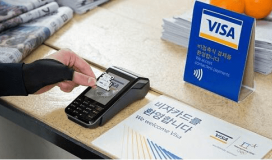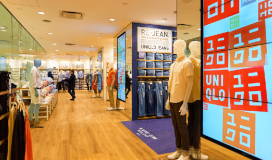Auburn University's RFID Lab is building a bay dedicated to aviation-based RFID technology with a gift provided by Delta Air Lines, the Delta Air Lines Foundation and the Jacobson Family Foundation, for that purpose. The airline this week announced its $2 million gift to Auburn for the Delta Air Lines Aviation Sensor ID Bay.
The new research bay dedicated to aviation is one step in what the lab expects to be a broadening of its scope beyond retail-based RFID. Altogether, Delta provided $6 million to the school, with $4 million dedicated to Auburn's Aviation program, in addition to the $2 million dedicated to the RFID Lab.

With the gift, says Justin Patton, the RFID Lab's director, the lab has already begun building the bay within the existing facility, which includes a simulated aircraft cabin containing 42 aircraft seats, as well as a baggage-loading area and service hangar space for tool tracking. There will also be an area that will simulate an aircraft parts assembly line. The money will be used to not only build out the lab bay, but also fund student and faculty research on projects related to RFID tags in avionics.
The lab has already been working with the aviation industry for the past year and a half, Patton says, to develop data-certification testing program for flyable parts. That program, known as the Data Conformance Program, is intended to help stakeholders from original equipment manufacturers (OEMs), aircraft companies and airlines follow a specific protocol for writing and reading data on high-memory tags.
Numerous RFID-based software vendors have been working with the lab to ensure that the software follows a specific template. Since 2005, Patton says, the lab has conducted a variety of other projects as well, specifically for the aerospace industry, while the majority of its work has traditionally been in retail-based RFID technology.

Delta has multiple RFID deployments under way across different sectors. It is using RFID technology at several airports to track passenger luggage with UHF RFID tags attached. The baggage is being identified at four points along a passenger's journey: the handover of baggage to the airline, the loading of luggage onto aircraft, the subsequent delivery to a transfer area at the destination airport and the bags' return to passengers. "Our baggage performance is industry-leading," says a Delta spokesperson who asked to remain unnamed, "and with RFID, we continue to explore opportunities to widen the gap between us and our competitors."
Numerous airlines are either testing or deploying RFID technology in three other key use cases. In one scenario, RFID is being used to identify life jackets and other emergency equipment in aircraft cabins for automated inspections, and to prevent expirations or missing equipment on any aircraft. Secondly, companies are utilizing RFID on some flyable, serviceable parts that must be maintained on aircrafts, thereby creating a record of which services have been provided for each part, along with how long that part has been in use. Lastly, RFID is being employed to track the tools used by airlines for servicing and maintenance.
The challenges for the aircraft industry are more complex than for the retail sector, Patton says. "They have very different needs," he states, "and the technology is very different than the RFID used in retail." For one thing, the high-memory tags require fire-safety certification, radiation shielding and materials handling-instructions, to ensure that they can withstand the rigors of flying and meet Federal Aviation Administration (FAA) requirements. The tags are more expensive than the EPC UHF RFID tags attached to retail products, and the deployment of RFID tags will be considerably smaller. Therefore, Patton explains, the impact on the RFID industry is different than the growth in retail is. "Aviation has a much greater ratio of infrastructure to tags."



